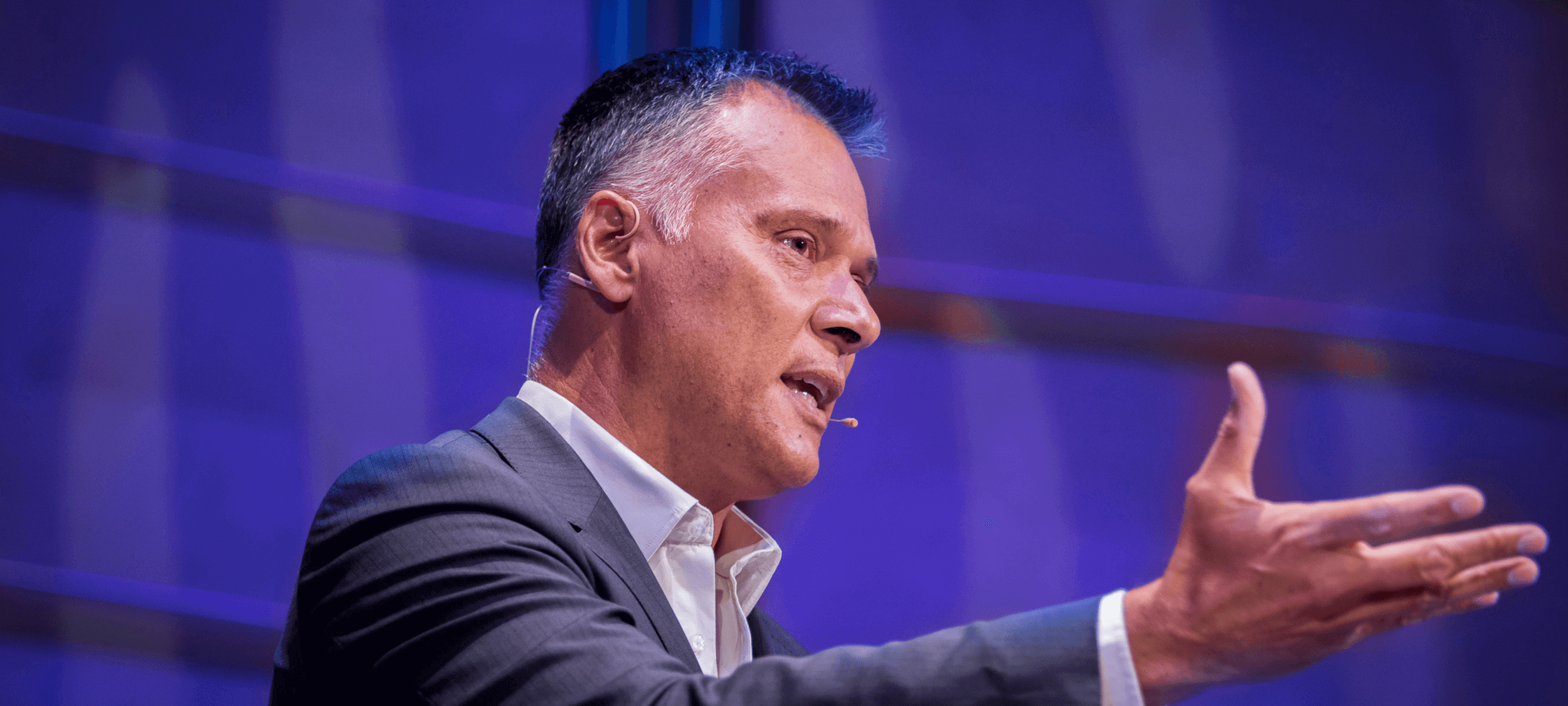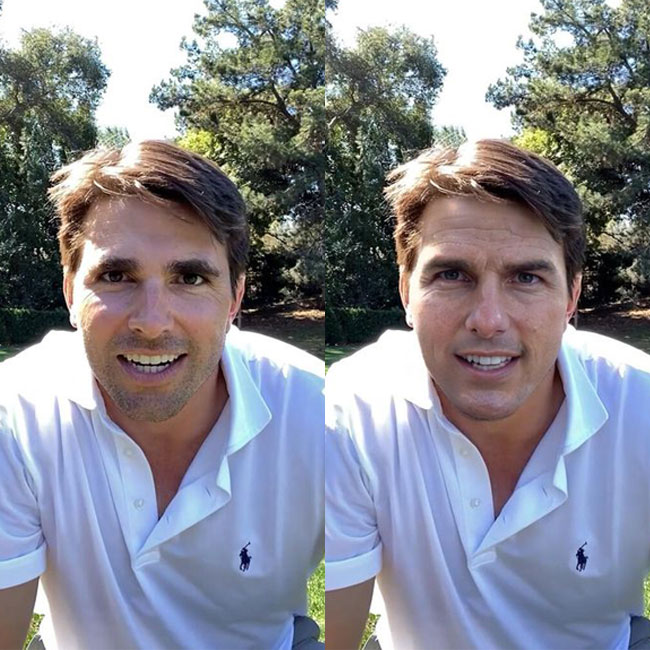Ending workplace bullying demands courage

Ending workplace bullying demands courage
Opinion + AnalysisBusiness + LeadershipHealth + WellbeingRelationships
BY Petrina Coventry The Ethics Centre 5 FEB 2016
Despite increasing measures to combat workplace harassment, bullies remain entrenched in organisations. Changes made to laws and regulations in order to stamp out bullying have instead transformed it into an underground set of behaviours. Now hidden, these behaviours often remain unaddressed.
In other cases, anti-bullying policies can actually work to support perpetrators. Where regulations specify what bullying is, some people will cleverly use those rules as a guide to work around. Although these people are no longer bullying in the narrow sense outlined by policies or regulations, their acts of shunning, scapegoating and ostracism have the same effect. Rules that explicitly define bullying create exemptions, or even permissions, for behaviours that do not meet the formal standard.
Because they are more difficult to notice or prove, these insidious behaviours can remain undetected for long periods. As Kipling Williams and Steve Nida argued in a 2011 research paper, “being excluded or ostracized is an invisible form of bullying that doesn’t leave bruises, and therefore we often underestimate its impact”.
The bruises, cuts and blows are less evident but the internal bleeding is real. This new, psychological violence can have severe, long-term effects. According to Williams, “Ostracism or exclusion may not leave external scars, but it can cause pain that often is deeper and lasts longer than a physical injury”.
Bullies tend to be very good at office politics and working upwards, and attack those they consider rivals through innuendo and social networks.
This is a costly issue for both individuals and organisations. No-one wins. Individuals can suffer symptoms akin to Post-Traumatic Stress Disorder. Organisations in which harassment occurs must endure lost time, absences, workers’ compensation claims, employee turnover, lack of productivity, the risk of costly and lengthy lawsuits, as well as a poor reputation.
So why does it continue?
First, bullies tend to be very good at office politics and working upwards, and attack those they consider rivals through innuendo and social networks. Bullies are often socially savvy, even charming. Because of this, they are able to strategically abuse co-workers while receiving positive work evaluations from managers.
In addition, anti-bullying policies aren’t the panacea they are sometimes painted to be. If they exist at all they are often ignored or ineffective. A 2014 report by corporate training company VitalSmarts showed that 96 percent of the 2283 people it surveyed had experienced workplace bullying. But only 7 percent knew someone who had used a workplace anti-bullying policy – the majority didn’t see it as an option. Plus, we now know some bullies use such policies as a base to craft new means of enacting their power – ones that aren’t yet defined as bullying behaviour by these policies.
Finally, cases often go unreported, undetected and unchallenged. This inaction rewards perpetrators and empowers them to continue behaving in the same way. This is confusing for the victim, who is stressed, unsure, and can feel isolated in the workplace. This undermines the confidence they need to report the bullying. Because of this, many opt for a less confrontational path – hoping it will go away in time. It usually doesn’t.
Cases often go unreported, undetected and unchallenged. This inaction rewards perpetrators and empowers them to continue behaving in the same way.
What can you do if a colleague is being shunned or ostracised by peers or managers? The first step is not to participate. However, most people are already likely to be aware of this. More relevant for most people is to not become complicit by remaining silent. As 2016 Australian of the Year David Morrison famously said, “The standard you walk by is the standard you accept.”
The onus is on you to take positive steps against harassment where you witness it. By doing nothing you allow psychological attacks to continue. In this way, silent witnesses bear partial responsibility for the consequences of bullying. Moreover, unless the toxic culture that enables bullying is undone, logic says you could be the next victim.
However, merely standing up to harassment isn’t likely to be a cure-all. Tackling workplace bullying is a shared responsibility. It takes regulators, managers and individuals in cooperation with law, policy and healthy organisational culture.
The onus is on you to take positive steps against harassment where you witness it. By doing nothing you allow psychological attacks to continue.
Organisational leaders in particular need to express public and ongoing support for clearly worded policies. In doing so, policies begin to shape and inform the culture of an organisation rather than serving as standalone documents. It is critical that managers understand the impacts of bullying on culture, employee wellbeing, and their own personal liability.
When regulation fails – the dilemma most frequently seen today – we need to depend on individual moral character. Herein lies the ethical challenge. ‘Character’ is an underappreciated ethical trait in many executive education programs, but the moral virtues that form a person’s character are the foundation of ethical leadership.
A return to character might diminish the need for articles like this. In the meantime, workplace bullying provides us all with the opportunity to practise courage.
Ethics in your inbox.
Get the latest inspiration, intelligence, events & more.
By signing up you agree to our privacy policy
You might be interested in…
Opinion + Analysis
Relationships
Why morality must evolve
Opinion + Analysis
Business + Leadership, Politics + Human Rights
Can philosophy help us when it comes to defining tax fairness?
Opinion + Analysis
Health + Wellbeing, Relationships
Ageing well is the elephant in the room when it comes to aged care
Opinion + Analysis
Health + Wellbeing
Democracy is hidden in the data
BY Petrina Coventry
Petrina Coventry is Industry Professor and Director of Development with the University of Adelaide Faculty of the Professions and the Business School. She previously held global vice president roles with the General Electric Company and The Coca Cola Company in the United States and Asia and was most recently CHRO with Santos Ltd.
BY The Ethics Centre
The Ethics Centre is a not-for-profit organisation developing innovative programs, services and experiences, designed to bring ethics to the centre of professional and personal life.
What your email signature says about you

What your email signature says about you
Opinion + AnalysisBusiness + LeadershipHealth + Wellbeing
BY The Ethics Centre 2 FEB 2016
Getting too many unethical business requests? Sreedhari Desai’s research suggests a quote in your email signature may be the answer to your woes.
In a recent study Desai enrolled subjects to participate in a virtual game to earn money. The subjects were told they’d earn more money if they could convince their fellow players to spread a lie without knowing about it. Basically, subjects had to trick their fellow players into believing a lie, and then get those other players to spread the lie around the game.
What subjects didn’t know is that all their fellow ‘players’ were in fact researchers studying how they would go about their deception. Subjects communicated with the researchers by email. Some researchers had a virtuous quote underneath their email – “Success without honor is worse than fraud”. Others had a neutral quote in their email signature – “Success and luck go hand in hand”. Others had no quote at all.
And wouldn’t you know it? Subjects were less likely to try to recruit people with a virtuous quote in their email. The quote served as a “moral symbol”, shielding the person from receiving unethical requests from other players. In an interview with Harvard Business Review, Desai outlines what’s happening in these situations:
When someone is in a position to request an unethical thing, they may not consciously be thinking, “I won’t ask that person.” Instead, they may perceive a person as morally “pure” and feel that asking them to get “dirty” makes an ethical transgression even worse. Or they may be concerned that someone with moral character will just refuse the request.
So, if you want to keep your hands clean it may be as simple as updating your email signature. It won’t guarantee you’ll do the right thing when you’re tempted (there’s more to ethics than pretty words!) but it will ensure you’re tempted less.
There are other, more expensive ways to avoid unethical approaches via email.
And in case you’re looking for a virtuous quote for your email signature, we surveyed some of our staff for their favourite virtuous quotes. Here’s a sample:
- “The unexamined life is not worth living” – Socrates
- “No man wishes to possess the whole world if he must first become someone else” – Aristotle
- “Protect me from what I want” – Jenny Holzer
- “A true man goes on to the end of his endurance and then goes twice as far again” – Norwegian proverb
- “Knowledge is no guarantee of good behaviour, but ignorance is a virtual guarantee of bad behaviour” – Martha Nussbaum
A small disclaimer to all of this – it might not work if you work with Australians. Apparently our propensity to cut down tall poppies and our discomfort for authority extend to moral postulations in email signatures. Instead of sanctimony, Aussies are likely to protect people with fun or playful quotes in their emails. Desai explains:
“We’re studying how people react to moral symbols in Australia. Our preliminary study showed that people there were sceptical of moral displays. They seemed to think the bloke with the quote was being ‘holier than thou’ and probably had something to hide.”
So, as well as your favourite virtuous quote, you might want to bung a joke on the bottom of your emails to please your sceptical Antipodean colleagues, lest they lead you into temptation.
Ethics in your inbox.
Get the latest inspiration, intelligence, events & more.
By signing up you agree to our privacy policy
You might be interested in…
Opinion + Analysis
Health + Wellbeing, Relationships, Science + Technology
Philosophically thinking through COVID-19
Opinion + Analysis
Business + Leadership
The value of principle over prescription
Opinion + Analysis
Business + Leadership, Politics + Human Rights
We are on the cusp of a brilliant future, only if we choose to embrace it
Opinion + Analysis
Health + Wellbeing, Relationships
Germaine Greer is wrong about trans women and she’s fuelling the patriarchy
BY The Ethics Centre
The Ethics Centre is a not-for-profit organisation developing innovative programs, services and experiences, designed to bring ethics to the centre of professional and personal life.
What comes after Stan Grant’s speech?

What comes after Stan Grant’s speech?
Opinion + AnalysisPolitics + Human RightsSociety + Culture
BY The Ethics Centre 25 JAN 2016
Stan Grant’s speech broke your heart – five views on what to do about it.
1) Tanya Denning-Orman say’s It’s not hard to capitalise on Grant’s momentum.
Last year Stan Grant delivered an address that left a crowd of hundreds speechless. This week, those same words jumped out of computer screens and into the hands of ordinary Australians and polarised millions of lounge room commentators. When this happened, he forced an entire nation to confront a history that no one wants to talk about.
He made you uncomfortable because he put a human face to the stats and figures that so commonly define First Nations peoples. Stan reminded you that we are people of law, lore, music, art and politics, and he inspired you to reimagine who we all are as Australians.
Yesterday, commentators described the impact of this speech as a “Martin Luther King moment”. Today, those of us who live it know that it’s all come and gone before. Noel Pearson delivered a speech that commentators said would be spoken about for years. In the months that followed, there was silence. With just a few words Charlie Perkins could mobilise crowds to take to the streets. Is it that easy to forget?
Knowing this, tomorrow the challenge will be that this momentum, created by a Wiradjuri man, doesn’t drown in a sea of barbecues and beers that is ‘Australia Day’. Just as Stan Grant said, we are better than this.
This time let the power of the word inspire you to make a change beyond ‘a thumbs up’ on a post and clicking the share button. We can insist that schools teach Australia’s silenced history. We can hold our governments to account. We can be empowered by our shared story.
Never before have we been so connected – we can create a global movement through our fingertips.
And I’ll let you in on a little secret. It’s not that hard to do.
Tanya Denning-Orman is the Channel Manager for NITV. Follow her on Twitter @Tanyadenning.
2) Luke Pearson argues that sentiment isn’t social justice. Now is the time to do something
The worry with making white people ‘feel all the feels’ as we sometimes say online, is that it won’t lead to any change in thought, behaviour or actual contributions to the work that needs to be done. Worse, it can actually do the opposite.
White people’s emotional experiences are all too often used to validate privilege and identify themselves as ‘one of the good ones’. This shifts the responsibility to act away from them and onto ‘those other people’.
Novelist Teju Cole labelled this phenomenon the ‘White Saviour Industrial Complex’, saying “The White Saviour Industrial Complex is not about justice. It is about having a big emotional experience that validates privilege.”
This response gives people the moral authority to continue to justify racist responses that make them feel good about their privilege and direct and indirect contributions to racism and oppression. This attitude is what all too often justifies brutal government responses to complex problems.
In Australia this takes the form of punitive approaches to an endless list of humanitarian issues. The NT Intervention, offshore detention, military action overseas, Aboriginal deaths in custody, and increased rates of Indigenous child removal and incarceration whilst simultaneously defunding strategies to reduce these numbers…
This attitude leads people to get upset or feel attacked whenever white privilege is mentioned. They remove themselves from any responsibility purely by virtue of their emotional experiences, not recognising they are the ones who benefit most from their emotional experiences.
The very same people who claim to be our biggest supporters still argue that “we need to stop talking about race” rather than arguing “we need to stop racism”. They say “we are all Australians” without seeing the irony – erasing the identity of others was the outcome intended by culture genocide and assimilationist ideals. They feel betrayed when this is challenged because they feel they are owed for the emotional experiences they have felt.
If your response to videos like Stan Grant’s speech is to pat yourself on the back for a job well done without actually considering your place in the status quo and whether or not your ideas are just rebranded versions of the racism people have been fighting against for centuries, you are a part of the problem.
The same goes if you recognise the above but don’t actually do anything to change things. If you sit silently when you see racism within your own family, your workplace, your social group… If you don’t support those who work at the coalface, addressing the ongoing impacts of colonialism or who work at the highest levels trying to prevent it from continuing…
You are part of the problem.
“I deeply respect American sentimentality, the way one respects a wounded hippo. You must keep an eye on it, for you know it is deadly”, writes Teju Cole.
Ditto for Australia.
Luke Pearson is the Founder of IndigenousX, indigenousx.com.au. Follow them on Twitter @IndigenousX.
3) Anita Heiss anticipates that the real power of Stan’s speech is yet to come
As part of the debate, Stan Grant’s words were powerful. They were honest. They came from the heart and they were passionate. Unfortunately, for many of us they were not something new. They were words we had said ourselves in vain, similar to words we had heard from our parents and our peers. And so, we watched and sat in pain yet again at the reality of what is our great Australian nightmare.
For me the importance of Stan’s speech is that it has managed to reach a global audience. It has been heard by some who, for whatever reason, knew nothing about the facts Stan, a strong Wiradjuri man, was sharing as part of a debate that, in all honesty, was not much of a debate.
Words can be powerful. They can make us change the way we think. They can help us understand and feel empathy, but what are words without actions? I think the real power will come now, post Stan’s speech in a call to action to all those tweeting and facebooking to actually do something!
Teachers, watch the entire debate with your students. Get them to discuss, debate and talk about the issues raised. Parents, do the above also!
Corporates, politicians, policy makers, what are you doing in your worlds to address the inequities Stan mentioned? Immortality rates, incarceration rates, the ongoing removal of children?
Re-tweeting is not enough! You cannot claim to want equality for Indigenous Australians if you are not prepared to participate in the change – the actions – required to make that happen.
Build partnerships with Indigenous organisations that are already working in the areas you have influence in. Form lasting strategies to create the change this country needs. But please know, it’s not going to be easy, or going to be fixed overnight. Over 200 years of damage needs to be repaired to make the nightmare a dream.
Dr Anita Heiss is a proud member of the Wiradjuri nation. She is an author and Manager of the Epic Good Foundation. Follow her on Twitter @AnitaHeiss.
4) Kelly Briggs feels that we’ve had ‘Stan Grant moments’ before
I am confounded that some are comparing Stan Grant’s much admired speech from the IQ2 debate last year on Australia’s racism to Martin Luther King. Doing so erases Aboriginal activists who have come before us, including Dr Charlie Perkins.
Perkins headed what is now known as the ‘Freedom Rides’ – a busload of Sydney University students who toured particularly racist northern New South Wales towns to shine a spotlight on the heinous racism and segregation between blacks and whites in 1965. His passionate activism in towns, pubs, RSLs, swimming pools and the like saw changes to many rules and regulations.
Now that Stan Grant’s speech has gone ‘viral’, will it engender any changes to current governmental policies? Put back any of the money ripped out of the budget allocated to Aboriginal programs and issues? Create a much needed conversation about Australia’s ongoing overt and casual racism?
I don’t think it will. Stan Grant, while passionate, has not added anything new to what Aboriginal people have been saying in blogs, news articles and on social media for the better part of a decade. So, while I admire Stan’s stance, I do not hold out any hope that it will not be forgotten in a week, or that it will make a difference.
Kelly Briggs blogs at thekooriwoman.wordpress.com. Follow her on Twitter @TheKooriWoman.
5) Siv Parker on why we haven’t done this before
We haven’t had enough feel-good moments cast around Aboriginal Australia for this nation to be in a position to waste one. So where to from here?
An icebreaker may help to shake off a few nerves. It would be easier on all of us if we took a breath and agreed that we haven’t done this before.
Bridge walks, town meetings, community events, the apology and the land help to give us all our bearings.
But a digital world makes it easier to satisfy a yearning for substance, to extend ourselves beyond fleeting online interactions.
The anticipated referendum around constitutional reform is a hook on which to hang our shared history. I have no doubt we can agree to include Indigenous Australians in the constitution. I am not the only one willing to make a start on talking about what that could look like.
We won’t need to invoke great moments from foreign countries to define us, we can create our own. Indigenous people are on the crest of a wave in asserting ourselves in words, art, performances and knowledge systems that has been decades in the making. This nation can do better. That is the promise within our ancient storytelling tradition. A story is not a one-sided affair. We don’t listen to a story, we become a part of it. In years to come, they will continue to tell stories that includes us all.
Siv Parker is an award-winning writer and blogger. Follow her on Twitter @SivParker.
Ethics in your inbox.
Get the latest inspiration, intelligence, events & more.
By signing up you agree to our privacy policy
You might be interested in…
Opinion + Analysis
Politics + Human Rights, Relationships, Science + Technology
Parent planning – we shouldn’t be allowed to choose our children’s sex
Opinion + Analysis
Science + Technology, Business + Leadership, Society + Culture
AI might pose a risk to humanity, but it could also transform it
Opinion + Analysis
Politics + Human Rights, Climate + Environment
What we owe each other: Intergenerational and intertemporal justice
Explainer
Society + Culture, Politics + Human Rights
Ethics Explainer: Just Punishment
BY The Ethics Centre
The Ethics Centre is a not-for-profit organisation developing innovative programs, services and experiences, designed to bring ethics to the centre of professional and personal life.
How should vegans live?

How should vegans live?
Opinion + AnalysisClimate + EnvironmentHealth + Wellbeing
BY XAVIER COHEN The Ethics Centre 24 JAN 2016
Ethical vegans make a concerted lifestyle choice based on ethical – rather than, say, dietary – concerns. But what are the ethical concerns that lead them to practise veganism?
In this essay, I focus exclusively on that significant portion of vegans who believe consuming foods that contain animal products to be wrong because they care about harm to animals, perhaps insofar as they have rights, perhaps just because they are sentient beings who can suffer, or perhaps for some other reason.
Throughout the essay, I take this conviction as a given, that is, I do not evaluate it, but instead investigate what lifestyle is in fact consistent with caring about harm to animals, which I will begin by calling consistent veganism. I argue that the lifestyle that consistently follows from this underlying conviction behind many people’s veganism is in fact distinct from a vegan lifestyle.
It is probably the case that one cannot live without causing harm to animals due to the trade-off in welfare between other animals who are harmed by one’s own consumption.
Let us also begin by interpreting veganism in the way that many vegans – and most who are aware of veganism – would. A vegan consumes a diet containing no animal products. In conceiving of veganism in terms of what a diet contains, there seems to be an intuition about the moral relevance of directness, according to which it matters how direct the harm caused by the consumption of the food is with regards to the consumption of the food.
On this intuition, eating a piece of meat is worse than eating a certain amount of apples grown with pesticides that causes the same amount of harm, because the harm in the first case seems to be more directly related to the consumption of the food than in the second case. Harm from the pesticides seems to be a side-effect of eating the food, whereas the death of the animal for meat seems to be a means to the eating food.
Even if we grant this intuition to be a good in this case, it is not good in the case where the harm is greater from the apples than from the meat. To eat the apples in this case is to not put one’s care about harm to animals first, which means going against the only thing that should motivate a consistent vegan.
Here, our intuition about the amount of harm caused is what seems to matter; if what we care about is harm to animals, then we should cause less rather than more harm to animals, and therefore, from the moral point of view, it seems that it is better to eat the meat than the apples. Let the conviction in this intuition be called the ‘less-is-best’ thesis.
Therefore, the intuition about the directness of the harm is only potentially relevant in situations where one has to choose between alternatives that cause the same amount of harm, or in situations where one does not know which causes more harm. The rest of the time, it seems that consistent vegans should not care about the directness of the harm, but instead care only about causing less rather than more harm to animals.
Consistent vegans should not care about the directness of the harm, but instead care only about causing less rather than more harm to animals.
This requires an awareness of harm that extends further than relatively common considerations noted by vegans regarding animal products being used in the production process for—but not being contained in—foodstuffs like alcoholic drinks. Caring about harm to animals means caring about, less directly, accidental harm to (usually very small) animals from the harvesting process, and from products that have a significant carbon footprint, and thereby contribute to (and worsen) climate change, which is already starting to lead to countless deaths and harm to animals worldwide.
However, caring about harm to animals cannot plausibly require consistent vegans to cause no harm at all to animals. If it did, then in light of the last two examples given above, it seems it would require consistent veganism to be a particularly ascetic kind of prehistoric or Robinson Crusoe-type lifestyle, which would clearly be far too demanding.
In fact, it is probably the case that one cannot live without causing harm to animals due to the trade-off in welfare between other animals who are harmed by one’s own consumption, and oneself (an animal) who is harmed if one cannot consume what one needs to survive. But it is definitely the case that all humans could not survive if no harm to other animals could be caused; this means that either human animals or non-human animals will be harmed regardless of how we live.
We could not all be morally obligated to live in such a way that we could not in fact all live. Therefore, due to this argument and due to such a lifestyle being over-demanding, there are two sufficient arguments for why causing some harm to animals is morally permissible.
If it is the case that causing some harm to animals is morally permissible, then there is no clear reason why there should be a categorical difference in the moral status of acts – such as impermissibility, permissibility, and obligation – with regards to how they harm animals, apart from when these categorical differences arise only from vast differences in the amount of harm caused by different acts.
One’s care for animals should be further-reaching: rather than merely caring about harm one causes, a consistent vegan should care about acting or living in a way that leads to less rather than more harm to animals.
So, for example, shooting a vast number of animals merely for the pleasure of sport may well be impermissible, but only insofar as it causes a much greater amount of harm than alternative acts that one could reasonably do instead of hunting. It seems that the most reasonable position, then, which is in line with the less-is-best thesis, is that the morality of harm to animals is best viewed on a continuum on which causing less harm to animals is morally better and causing more harm to animals is morally worse, where the difference in morality is linked only to the difference in the amount of harm to animals.
Hitherto, I have said that it seems to be the case that consistent vegans care about causing less rather than more harm to animals. However, I claim that the less-is-best thesis should in fact be interpreted as having a wider application than merely harm caused by our actions or life lived. One’s care for animals should be further-reaching: rather than merely caring about harm one causes, a consistent vegan should care about acting or living in a way that leads to less rather than more harm to animals. The latter includes a concern about harm caused by others that one can prevent, which the former excludes as it is not harm caused by oneself.
The impact of social interaction on people’s lifestyles is an important way in which consistent vegans can act or live in a way that leads to less rather than more harm to animals. That nearly all vegans are in fact vegans because they were previously introduced to vegan ideas by others – rather than coming by them and becoming vegan through sheer introspection – is testimony to the impact of social interaction on people’s lifestyles, which in turn can be more or less harmful to animals.
If this recommended lifestyle is too demanding, many will reject it or simply not change, meaning that these people will continue to harm animals.
Consistent vegans have the potential to build a broad social movement that encourages many others to lead lives that cause less harm to animals. But in order to do this, consistent vegans will have to persuade those who do not care about harm to animals (or let care about harm to animals impact their lifestyle) to lead a different kind of lifestyle, and if this recommended lifestyle is too demanding, many will reject it or simply not change, meaning that these people will continue to harm animals.
The vegan lifestyle may seem too hard for many people
If these people are more likely to make lifestyle changes if the lifestyle suggested to them is less demanding, which for many – and probably a vast majority – will be the case, then consistent vegans could bring about less harm to animals if they try to persuade these people to live lifestyles that optimally satisfy the trade-off between demandingness and personal harm to animals. This lifestyle that consistent vegans should attempt to persuade others to follow I shall call “environmentarianism”.
Why ‘environmentarianism’? And what is the content of environmentarianism? Care about harm to animals can be framed in terms of care for the environment, as the environment is partially – and in a morally important way—constituted by animals. This can be easily – and I believe quite intuitively – communicated to those who do care about harm to animals, and those who do not are likely to be more swayed by arguments that are framed in terms of concern for the environment than for animals. Concern for oneself, one’s loved ones, and one’s species – things that most people care greatly about – may be more easily read into the former than the latter, especially in light of impending climate change.
Environmentarianism, then, is the set of lifestyles that seek to reduce harm done to the environment (which is conceived in terms of harm to animals for consistent vegans) – as this matters morally for environmentarians – regardless of which sphere of life this reduction of harm comes from. Be it rational or not, ascribing the title and social institution of ‘environmentarian’ to one’s life will, for many, make them more likely to lead a life that is more in line with caring about harm to animals; people often attach themselves to these titles, as the dogmatic behaviour of many vegans shows.
Some may prefer to reduce total harm to animals by a given amount by making the sacrifice of having a vegan diet, but not compromising on their regular car journey to work, whilst others may find taking on the latter easier than maintaining the strict vegan diet.
Moreover, environmentarianism can be practised to a more or less radical – and thus moral – extent. Some may prefer to reduce total harm to animals by a given amount by making the sacrifice of having a vegan diet, but not compromising on their regular car journey to work, or perhaps by opting out of what for them may be uncomfortable proselytising, whilst others may find taking on the latter two easier than maintaining the strict vegan diet (that they perhaps used to have). Some may reduce total harm by an even greater amount – and hence lead a morally better lifestyle – by having a vegan diet and by refraining from harmful transport and by actively suggesting environmentarianism to others.
As an environmentarian may begin by making very small changes, one can be welcomed into a social movement and be eased in to making further lifestyle changes over time, rather than being put off by the strictness of veganism or the antagonism typical of some vegans. Environmentarianism has the great advantage of making it easier for the many who cannot face the idea of never eating animal products again to live more ethically-driven lives.
It follows from all this, then, that consistent vegans should be (especially stringent) environmentarians. For the given impact they have on the total harm to animals, it does not matter if this comes from a totally vegan diet. In fact, to be fixated on dietary purity to the neglect of other spheres of one’s life – in the way that many vegans are – is to contradict a care about harms to animals. With this care given, what matters is lowering the level of harm to animals, regardless of how this harm is done.
This article was republished with permission from the Journal of Practical Ethics.
Ethics in your inbox.
Get the latest inspiration, intelligence, events & more.
By signing up you agree to our privacy policy
You might be interested in…
Explainer
Health + Wellbeing, Relationships
Ethics Explainer: Tolerance
Opinion + Analysis
Health + Wellbeing, Relationships
Confirmation bias: ignoring the facts we don’t fancy
Opinion + Analysis
Health + Wellbeing, Society + Culture
Does your body tell the truth? Apple Cider Vinegar and the warning cry of wellness
Opinion + Analysis
Health + Wellbeing, Politics + Human Rights
3 Questions, 2 jabs, 1 Millennial
BY XAVIER COHEN
Oxford student Xavier Cohen, was one of the two finalists in the undergraduate category of the inaugural Oxford Uehiro Prize in Practical Ethics.
BY The Ethics Centre
The Ethics Centre is a not-for-profit organisation developing innovative programs, services and experiences, designed to bring ethics to the centre of professional and personal life.
Your donation is only as good as the charity you give it to

Your donation is only as good as the charity you give it to
Opinion + AnalysisBusiness + LeadershipHealth + Wellbeing
BY Sam Deere The Ethics Centre 21 JAN 2016
It’s admirable, perhaps even required, for those of us living comfortable lives in the developed world to give some time or money to ‘good causes’. We recognise fortune has smiled upon us and have a desire to ‘give back’ in some way – we have so much and others have so little, we seek to redress it.
But while there is strong agreement the fortunate have an opportunity – some would say an obligation – to use their resources to make life better for the less well-off, the discussion often ends here. That is, we think people should do something but we’re often not concerned with exactly what that something is. Should you donate to a local homeless shelter, a national medical research charity or a big international NGO? For many people, it’s unclear there’s any difference between these actions – surely they all make the world a better place?
Let’s think about that.
Say there were only two charities in the world, The Cupcake Foundation and the Real Actual Medicines Trust. The Cupcake Foundation distributes delicious cupcakes to people in hospital. The Real Actual Medicines Trust distributes medicines that will completely cure a patient’s disease. Both charities are undeniably making the world a better place but it’s pretty clear that one is doing much more good than the other. I think most people would choose to donate their money to The Real Actual Medicines Trust.
Asking these questions gets to the heart of why it is we help people. Are we altruistic because we think that making others better off is good in and of itself? Or do we just do it to stave off our middle-class guilt?
Take a different example. Let’s say that a third charity, Medicines ’R Us, is also distributing medicines, but they use generic medicines that cost half as much to produce as the on-brand medicines distributed by The Real Actual Medicines Trust. This means that a $20 donation to the Medicines ‘R Us will cure twice as many people as a $20 donation to the Real Actual Medicines Trust. Surely – given we can do twice as much good donating to the former than the latter – we should give our money to Medicines ‘R Us, thus doubling our impact.
These seem like contrived examples, but in reality, the differences between charities are astounding – not just a factor of two or three times, as in the example above, but some are ten, or even 100 times more effective than others!
Asking these questions gets to the heart of why it is we help people. Are we altruistic because we think that making others better off is good in and of itself? Or do we just do it to stave off our middle-class guilt? To impress other people? To show off?
Undoubtedly many good works are motivated by these latter factors. But are they really good reasons? Are they the reasons we’d choose? I’d certainly like to think that when I donate to charity I’m doing it for the benefit of other people. The sense of wellbeing that I get afterwards is nice but ultimately not morally important.
If it’s really other people’s benefit we care about, we need to think hard about how we choose where we spend our time and money on good causes. We don’t have infinite time and money. Every choice to donate something to one cause is an implicit choice not to donate it to another.
It might seem harsh to judge any charity less effective than any other another. Doesn’t that mean that the people served by the less-effective charity lose out? It does. But not making comparisons doesn’t mean everyone gets the help they need. It means that people who would be helped by the more effective charities lose out. More people are becoming sick, even dying, because people are choosing not to donate more effectively.
In the long run, hopefully we’ll be in a position to eradicate extreme poverty and disease from the world and we’ll have enough resources to fund all good causes. In the meantime, we should surely help as many people as we can.
Effective Altruism, a new social and philosophical movement is emerging to try to answer a fundamental question – “what is the most good that we can do?”
Effective altruism is about using evidence and reason to find ways to make the world as good a place as it can be. It tries to view all people – wherever they are in the world, even those not yet born – as being equally deserving of living happy, healthy, dignified, flourishing lives. Its proponents try to focus on the best ways of doing good. It’s just like regular altruism in that it seeks to do good for others. However, by focusing on effectiveness, it seeks to do the most good possible.
This manifests in different ways. Some people try to find the most effective charities to donate to, others try to work out which career you should choose if you want to have the biggest impact. Others think about the long-run future of humanity, reasoning that if there’s even a small chance that humans could wipe ourselves out (say, in a nuclear winter, or a deadly engineered disease escaping a laboratory), avoiding such an outcome would be a huge benefit.
It’s just like regular altruism in that it seeks to do good for others. However, by focusing on effectiveness, it seeks to do the most good possible.
Many also take a pledge to give a fixed portion of their income to effective charities – often 10 percent – because it increases the chance that they’ll actually donate, rather than putting it off for another day. In all these cases people are motivated by their sense of empathy but guided by scientific evidence and reason.
It may seem strange to think we might have an obligation to donate to one set of charities rather than others. After all, surely if someone wants to donate their money to a charity that focuses on people in their local community or on a cause that’s particularly important to them, they have that right. Of course, donation – unlike taxes – is an individual choice, not a legal obligation. But when faced with a choice of whether to help 100 people or just one, is it really a difficult decision?
Ethics in your inbox.
Get the latest inspiration, intelligence, events & more.
By signing up you agree to our privacy policy
You might be interested in…
Opinion + Analysis
Health + Wellbeing, Society + Culture
Does your body tell the truth? Apple Cider Vinegar and the warning cry of wellness
Opinion + Analysis
Business + Leadership, Climate + Environment, Society + Culture
Overcoming corruption in Papua New Guinea
Opinion + Analysis
Business + Leadership
How BlueRock uses culture to attract top talent
Opinion + Analysis
Society + Culture, Business + Leadership
How to tackle the ethical crisis in the arts
BY The Ethics Centre
The Ethics Centre is a not-for-profit organisation developing innovative programs, services and experiences, designed to bring ethics to the centre of professional and personal life.
To live well, make peace with death

To live well, make peace with death
Opinion + AnalysisHealth + WellbeingRelationships
BY Matthew Beard The Ethics Centre 14 JAN 2016
“What do we say to the god of death?” swordsman Syrio Forel asks Arya Stark in George R.R. Martin’s Game of Thrones (and in HBO’s TV series). “Not today.”
This short refrain marks the beginning of a sustained exploration of humanity’s relationship with death told through Arya’s experiences. She becomes a murderer and later, in ‘The House of the Undying’ where death is seen as a god to be worshipped, an assassin and servant to that god.
Watching Arya’s story unfold, it seemed to me she’d never forgotten her former (you guessed it, now dead) teacher’s lesson – the only response to death is denial.
According to many thinkers, this isn’t surprising at all. Arya isn’t alone in running from death. Denying the reality of human mortality is a near universal behaviour. In The Antidote: Happiness for people who can’t stand positive thinking, Oliver Burkeman considers the writing of Ernest Becker, whose arguments Burkeman surmises. “Your life is one relentless attempt to avoid [thinking about death] – a struggle so elemental that … for much of the time you succeed.”
Becker believed to avoid confronting our mortality people invest in “immortality projects”. Art, family, business, nations, war, charity, and so on… Immortality projects aim to overcome physical death by ensuring our continued existence through symbols or ideas.
The late David Bowie promised “We can be heroes”, and that’s precisely Becker’s point. Immortality projects are attempts to become heroes, thereby avoiding the emptiness of death.
But research suggests the common instinct to avoid thinking about our mortality might be worth pushing against. In a paper entitled ‘Deliver us from Evil’, researchers found that mortality avoidance can cloud our judgements about life and death issues, leading to unreflective decisions in high-stakes situations.
The study asked two groups of people to undertake a long and generally dull questionnaire and then to read a short essay and tell researchers how strongly they agreed with it. The essay was a strong statement of support for the controversial policies of the Bush administration’s invasion of Iraq. It included lines like “It annoys me when I hear other people complain that President Bush is using his war against terrorism as a cover for instituting policies that, in the long run, will be detrimental to this country … Mr. Bush has been a source of strength and inspiration to us all. God bless him and God bless America”.
The only difference between the two groups was that one questionnaire forced subjects to consider their own mortality. The “mortality salience” group were asked to “briefly describe the emotions that the thought of your own death arouses in you” and to “jot down, as specifically as you can, what you think will happen to you as you physically die, and once you are physically dead”.
For some, even the idea of answering these questions might feel uncomfortable, as it did for the subjects in the experiment. Researchers found the “mortality salient” subjects invested more strongly in the nearest immortality project to hand – the war in Iraq. Subjects from the mortality salience group agreed strongly with the essay. By contrast, the control group generally disagreed with the essay’s sentiments.
When we’re forced to confront our own mortality, our default reaction may not be the product of rational thinking but an impulsive rejection of death.
This tells us something important – especially in a time when we are continually confronted with the threat and reality of terrorism and domestic violence nearly every day. When we’re forced to confront our own mortality our default reaction may not be the product of rational thinking but an impulsive rejection of death. The researchers argued similarly:
The fact that reminders of death and the events of 9/11 enhanced support for President Bush in the present studies may not bode well for the philosophical democratic ideal that political preferences are the result of rational choice based on an informed understanding of the relevant issues.
This poses a challenge for ethical behaviour – some of the most serious ethical decisions people face are made when they are confronted with death. Most obviously these include healthcare and political decisions with serious implications for the general populous. Is it possible to overcome mortality avoidance and make decisions based on moral values and principles instead?
Researchers weren’t optimistic on this point, but Burkeman indirectly suggests a way forward. His interest lay in whether thinking about death might enable us to live a happier life. He presents evidence that regular contemplation of death can enable us to avoid horror and shock when it ultimately arrives. “The more you become aware of life’s finitude, the more you will cherish it and the less likely you will be to fritter it away on distraction”.
The same might be true for our mortality avoidance in decision making. If regular acquaintance with death can remove some of its shocking strangeness, perhaps we will be less likely to invest in immortality projects as a way to distract ourselves from its reality. By making our peace with the fact we are all going to die, we will be less likely to make decisions based in our fear of death. If ‘Deliver us from Evil’ is any indication, this might also save lives in the long run by ensuring serious decisions are made reasonably and not from fear.
Plus, doing so might also make you happier.
Ethics in your inbox.
Get the latest inspiration, intelligence, events & more.
By signing up you agree to our privacy policy
You might be interested in…
Opinion + Analysis
Business + Leadership, Health + Wellbeing
Your donation is only as good as the charity you give it to
Opinion + Analysis
Health + Wellbeing
Women’s pain in pregnancy and beyond is often minimised
Opinion + Analysis
Relationships
Putting the ‘identity’ into identity politics
Opinion + Analysis
Relationships
Stopping domestic violence means rethinking masculinity
BY Matthew Beard
Matt is a moral philosopher with a background in applied and military ethics. In 2016, Matt won the Australasian Association of Philosophy prize for media engagement. Formerly a fellow at The Ethics Centre, Matt is currently host on ABC’s Short & Curly podcast and the Vincent Fairfax Fellowship Program Director.
BY The Ethics Centre
The Ethics Centre is a not-for-profit organisation developing innovative programs, services and experiences, designed to bring ethics to the centre of professional and personal life.
James Hird In Conversation Q&A

James Hird In Conversation Q&A
Opinion + AnalysisHealth + WellbeingRelationships
BY Aisyah Shah Idil 8 JAN 2016
With the players being unable to contact people such as the Club or for those at the Bulldogs or Port Adelaide, is there a concern as the season moves on how those players can be supported, and the things the AFL and the Clubs can put in place to help them to get through the year?
HIRD: Yeah, I’m not close enough to it anymore to know exactly what those processes are, but I know that the Clubs and the AFL Players Association has processes in place – I just can’t tell you what they are. I think the 34 players and their families will be a source of support for each other as well.
One of the difficulties is that as a player you become very institutionalised in your lifestyle. You get up at seven, you go to the Club, you train, you go home at four. You do that day after day. You’re told what to eat, you’re told what to drink, you’re told where to train, how to sleep … I think that lack of routine will be hard for them to work through.
HOLMES: The structural issue of having a High Performance team over here, independent from the Senior Coach, that doesn’t feel like a system that would go forward.
HIRD: I actually disagree with that. I don’t think a Senior Coach should be responsible for those people at all. My knowledge of medicine and of the medical department is tiny – I’m not a doctor. I’m not trying to absolve myself from what happened, I’m just saying I would never … I wouldn’t think in the future coaches would be in charge of those things at all.
You need experts and you need a Head of Football who is really a “dot I’s and cross the T’s”, process-driven person – whose got some charisma to lead. But the most important job for the coach now in the club is to be so close to his players that they play for him, to set the agenda for the game plan and is to get his coaches coaching the way he wants to. And then he’s the public face.
That’s a big job in terms of time commitment so to look after the nitty-gritty intricacies of, let’s say, the supplement program now… Other coaches would say, they don’t know what their players are given and they actually don’t want to know what their players are given because then that leads to the point where if you do know then you have to go and research it. John Worsfold at Essendon has got no time to go and research the latest supplement. That needs to be done by someone else.
HOLMES: Firstly, did any of the players ever express concern about the program – that’s the first question. And the second question is: with the benefit of hindsight is there something in particular that stands out as where you perhaps could have twigged to something going wrong.
HIRD: I think one of the things I wish I had have done better was … Stephen Dank proved A0964 was the drug or supplement I thought was the big issue. He wasn’t allowed to give that so he went and got the WADA documentation for Bruce Reid to approve and tick it off. And Bruce Reid eventually did approve it and tick it off.
He [Dank] waved a bit of paper under my nose one day and said “oh, I’ve got the approval”. Now I wish, instead of waving it under my nose and saying “oh I saw the WADA approval document”, I wish I’d got that document, looked at it, checked its authenticity … because there is a suggestion that document is not authentic. I think if we’d discovered then that document wasn’t authentic or wasn’t what they thought it was that would have set off a number of alarm bells that would have said “that’s not what we’re doing.”
And I think I would have been stronger in June or July in that meeting with David Evans and Ian Robson and said “Well, if he’s still there, we’re not working”. That’s how strong we had to be. We were very strong but we probably should have said “well if they’re there, we’re not. You make the choice”.
HOLMES: I’m intrigued about the 13 players who didn’t take part. Was there any repercussion from them? First off, do you know why they didn’t take part in the program?
HIRD: With the younger guys, Football Club policy, even when I was there as a younger player – they don’t really want to give you any supplements or medication. They want to let your body adapt and just grow and do it naturally. So there were probably 5 or 6 new guys that didn’t do it.
Jason Winderlich had a phobia for needles, so did David Zaharakis, and some of the guys just didn’t like taking supplements. I mean, whether supplements are taken orally or it’s an injection – if they’re taken either way – some people just want to eat naturally, so it was a choice and that was the choice they made.
HOLMES: Given that it’s known Melbourne had basically the same program with the same staff and that 12 other Clubs have very similar programs. How do you cope – especially given you say you were silenced for effectively three years – with the constant suggestion that it was only you and it was only Essendon who had this program. And this was only revealed on Tuesday night by Caroline Wilson.
HIRD: It’s disappointing and it’s not right, but I think we have to own our responsibility. I mean the program that we ran led to what happened. So it’s very disappointing and as I say it’s not right but you can only know what’s going on in your backyard and take responsibility and that’s what we need to do.
HOLMES: Do you think the WADA code is appropriate for a team sport such as the AFL?
HIRD: The WADA code is very big and very broad so there’s elements of it that are right. You’ve got certain drugs or certain supplements that shouldn’t be taken so that part of it’s right. But there are elements of it that aren’t right. I’m probably not the right person to ask, to be honest, because I haven’t read the WADA code in detail.
I don’t know what the alternative is, but it would seem that this sanction… Firstly the evidence and the way it was put together is wrong and it shouldn’t have happened the way it did. And secondly the fact the players are all … that “no significant fault” was given is just ridiculous. I mean, what more could they do?
They were told by Stephen Dank that everything was compliant, and they were told they were being given Thymomodulin. Now, Thymomodulin is something you’re allowed to take, so every time they get Thymomodulin should they be testing it in a laboratory? I think that’s the ridiculous nature of this decision. Let’s say they were duped – what more could they have done?
HOLMES: I was fascinated to hear the twenty minute discussion about peptides and when you were called in to talk about that. Do you think – and I don’t know if this is true or not – that you saw legal supplements and the peptides and things like that as maybe a future way to gain an advantage? And if that is true, do you think that might have, when these kind of concerns were surfacing and things like that, that maybe made you want to keep going with them and keep that very legal competitive edge. Were they something that you were fascinated by or really wanted to explore as a legal way to…
HIRD: I wasn’t fascinated by them but I was certainly of the mind that if there were a legal advantage, whether that be supplementation, whether that be a training method, whether that be a game plan then that’s fine, but it had to be within the rules.
I was very clear what those rules were and at no time did I ever want to go outside the rules. Peptides weren’t necessarily to panacea or the greatest thing that was going to help us, it was just one of many things that we looked at as a club.
HOLMES: In your first press conference you used the words “I take full responsibility”. I’m just interested in why you’ve been reluctant to use those same words since that time.
HIRD: Well, because I was told to say those words. That might be a copout but I was told to say those words by the PR person at the time. And I think when I look back that I don’t think it’s fair for me to take full responsibility.
I think if you’re expecting the head coach to take full responsibility and you’re saying he’s the head of the tree and he’s running the Football Club … at no stage was I the head of the tree or running the Football Club. I was second in line to run the Football Club and the responsibility around giving players supplements was not my responsibility.
Now I accept that as a leader in the club that doesn’t absolve me of responsibility, but it doesn’t lead to full responsibility either.
HOLMES: Are you seeking answers on behalf of players from Stephen Dank?
HIRD: I think we’ve long since tried to seek answers from Stephen Dank. We’d love him to give answers but he hides behind something every time. He promises to show things and they just don’t turn up.
HOLMES: What was your last conversation with Stephen Dank?
HIRD: I can’t remember, it was in August 2012. I’m not sure. I didn’t walk down and say “you’re sacked”…
HOLMES: Have you contacted him since then?
HIRD: No.
HOLMES: In reference to Thymodulin, why weren’t they disclosed to the ASADA testers? Was there a directive from the Club to not disclose that information?
HIRD: There was no directive from the Club and I think that was a mistake by some of the players, but if you read the CAS report it says that 34 players didn’t disclose. Well, 34 players weren’t tested in that year. Only 21 of the players were tested so there’s 13 who weren’t tested.
Another five or six – I don’t know the exact numbers – who weren’t tested at the time when they were taking Thymomodulin. I think the form asks for a certain amount of time and what have you taken. There were others who were in a hurry and didn’t always put down what they were taking… you come off the track, you’ve got to give your urine sample, you’ve got to get to a meeting so you just put down a few things. It’s definitely a mistake but to say it was sinister or deliberate I think is a step too far.
HOLMES: With Dank, you had text messages and stuff. Can you elaborate on all them?
HIRD: Yeah sure. There were 7,000 text messages between myself and the football department in the time we’re talking about. Around about 100 of those were between Stephen Dank and myself. 75% were from him – I didn’t always respond to his text messages – not one of those text messages talked about performance enhancing drugs, illegal activity…
Yes, there was some supplement talk on those text messages but it was never about cheating the system. If you read those text messages and you go through them … that’s running a department. That’s part of running a department, not trying to cheat the system.
You can present information in a way you want to present it, or you can look at it as a whole. I think a lot of those instances are presented as a small part without the context.
HOLMES: So you guys weren’t convoluting to devise this toxic culture so to speak?
HIRD: If you read the text messages I can’t see how you could say that.
HOLMES: James, I’m confused where Essendon fit into this because there’s been a lot directed at the AFL and other parties but Essendon are the ones who set up the structure with not you looking after all the medical side of it, they’ve asked you to take full responsibility … You’ve remained loyal to them. Nothing’s really come out the fact that other people ran the Football Club, that the program was run through another channel through the CEO. I don’t understand why your loyalty remained with Essendon given they’ve set you up to this position based on what you’ve said tonight.
HIRD: I don’t think they’ve set me up to this position. I can only say – and it has been said on a number of occasions – that what gets published get published. A neutral story is very rarely published in a newspaper or talked about. It’s either one side or the other, and people talk about it as either one side or the other. It’s not neutral. There’s probably only a handful of journalists who take a neutral position.
The fact is, I made mistakes, the club made mistakes, we set the ball rolling, but we didn’t keep pushing it down the hill. It had a lot of hands.
HOLMES: Why did you remain so loyal to the club and not told your story until now when their part was to walk you down a path – someone asked a question about whistleblowing before – for you to stand up and say “Hang on, we wanted this guy out. We even wanted him of the club but financials took priority over player welfare…”. You could draw that inference. It just appears that there were opportunities for you to come out before this.
HIRD: I suppose I have the view that I still, up until a couple of months before I resigned, I thought we could work through this as a Club and we could tell our story at the end and that the players would get off. The most important thing in this is not me coming out and defending myself, that’s what I believe.
The most important thing in this is trying to get the players found not guilty, get them back playing football and give them their lives back. A career goes for seven to ten years. Three years were destroyed. Now it’s a fourth year. So that was my priority, knowing there’d be a time I’d get a chance to tell my story.
Unfortunately, I’ve had to tell my story when Armageddon’s hit and the players are in a terrible position. But I do have loyalty to the club, it’s been my life – it’s my grandfather’s life, it’s my father’s life, it’s my life. So that might be blind loyalty, it may be that people see it as silly but I genuinely love the Essendon Football Club and the reason I took that deal in 2013 was because I thought it was the best thing to enable the club to move on.
HOLMES: Paul Hamilton hasn’t been mentioned much at all. With Dank reporting through to him, what insights has he given you and how much awareness did he have of that?
HIRD: I haven’t spoken to Paul since he left the club in 2012.
HOLMES: What role do you think the media has played in this – clearly a witch hunt – and what do you think they can learn from the process that’s happened and the effect on the players’ welfare?
HIRD: I don’t think the media will learn much out of this. The media are the media and they’ll report what information they’re given and they’ll twist it … well, not twist it but they’ll present it in the fashion that they think will best serve their media outlet. The media’s role is yes, to be truthful and be correct, but the media’s role I think is also – they think – to sell a story.
I think that people who were giving that information and leaking that information and corrupting the integrity of the investigation, they’re the ones who have to learn something. And if you’re the AFL, you would have to sit back in my opinion and say “we did not handle this in the best possible fashion”.
HOLMES: Do you think that if this hadn’t happened to Essendon – Stephen Dank and all this kind of thing – that it was inevitable that it would have happened at some stage to someone, and do you think the AFL were negligent in not mitigating that risk?
HIRD: The AFL undertook blood tests on the Essendon players in 2012 and sent them to Cologne because they had a suspicion that something was going on at Essendon that wasn’t right. We didn’t know that, they didn’t tell us this and we wish that they had told us. Those blood tests came back negative and so the players didn’t test positive for anything. At that stage if the AFL had of said “right-oh, there’s an issue here”, come and seen the club, I think it’d be a different story.
If Stephen Dank had gone somewhere else would this have happened somewhere else? Maybe. But this is just the worst possible situation of everything happening the wrong way.
From the Essendon Football Club not doing the right thing, or having not the right protocols for something happening that shouldn’t have happened through to manipulation at the highest levels of Government, manipulation with ASADA, manipulation with the AFL to get an outcome. Everything went wrong. I don’t think anything could ever go that wrong ever again. I hope not.
In fact that press conference should probably never have happened because ASADA hadn’t even done their investigating yet. Why would you stand up and announce to the world that you’ve got this massive investigation that hasn’t been done? You don’t know what you’re going to find yet. They may have found more, they may have found less, but it was a terrible way to flag the whole start of it.
To watch the full interview, click here.
Ethics in your inbox.
Get the latest inspiration, intelligence, events & more.
By signing up you agree to our privacy policy
You might be interested in…
Explainer
Relationships
Ethics Explainer: Progressivism
Opinion + Analysis
Health + Wellbeing, Society + Culture
Should I have children? Here’s what the philosophers say
Opinion + Analysis
Climate + Environment, Politics + Human Rights, Relationships, Society + Culture
The youth are rising. Will we listen?
Opinion + Analysis
Business + Leadership, Politics + Human Rights, Relationships
After Christchurch
BY Aisyah Shah Idil
Aisyah Shah Idil is a writer with a background in experimental poetry. After completing an undergraduate degree in cultural studies, she travelled overseas to study human rights and theology. A former producer at The Ethics Centre, Aisyah is currently a digital content producer with the LMA.
Should parents tell kids the truth about Santa?

Should parents tell kids the truth about Santa?
Opinion + AnalysisHealth + WellbeingRelationships
BY David Kyle Johnson The Ethics Centre 15 DEC 2015
Kids, stop reading now – Santa’s watching!
Most adults know Santa Claus doesn’t exist. Yet most parents try to convince their children he does and try to keep them believing for as long as they can. They use bad evidence and ridiculous explanations to encourage kids to believe because it’s comforting or fun.
Is the Santa lie immoral? Does it teach poor critical thinking skills? Perhaps, but let’s put the philosophical questions aside.
As a parent, I have other concerns. Is the fact that children thank Santa and not their parents for their gifts problematic? Should Santa be used as a disciplinary threat? Does it really encourage imagination? Does lying to my child about Santa threaten my child’s view of how trustworthy I am? All in all, is lying to children about Santa good parenting practice?
I don’t think it is. It’s not that I’d be a bad parent if I did lie to my children about Santa. I’d be a better parent if I didn’t. Here’s why.
Children who believe in Santa thank him for their presents instead of their parents. It might seem selfish for a parent to desire such appreciation, but children need to learn to give it. What’s more, making your child believe the gifts you buy them come from someone else defeats the primary function of gift giving. As a theologian recently reminded me, gifts are the giver’s way of showing the recipient that he or she has worth and is loved. Children need assurance their parents see them as worthwhile and valuable – not Santa Claus.
And as even defenders of the Santa lie agree, Santa shouldn’t be used as a disciplinary threat. “Though lying [about Santa] can be an awfully convenient parenting crutch… it’s generally best to keep it to a minimum.” Yet that’s exactly how many parents use the Santa lie.
I don’t give out bonus points to my students for attending class. Why should we reward children for a mere lack of misbehaviour?
It’s perfectly acceptable to train children to do the right thing by rewarding good behaviour and punishing the bad – but the Santa lie doesn’t do this. It promises lavish reward for a simple lack of misbehaviour.
“Stop hitting your sister or Santa won’t bring you anything.”
I don’t give out bonus points to my students for attending class. Why should we reward children for a mere lack of misbehaviour?
In addition, lying about Santa doesn’t encourage imagination – it stifles it. You can’t pretend something is true if you already believe it is. As Pascal-Emmanuel Gobry puts it, “If believing in Santa was an exercise in imagination, every kid would believe in a different Santa.” By tricking children into actually believing Santa exists we rob them of the opportunity to imagine he does.
Consider how one mother who emailed me approaches Christmas with her children:
“We have ‘played the Christmas game’ with [our children] every year. My husband and I purchase the gifts and wrap them in secret, and we place them under the tree on Christmas Eve when the kids are asleep. We talk about Santa coming and what he’ll bring… Heck, we even have an Elf on the Shelf that the kids adore. We try to think of different (crazy!) ways that Santa and the Elf come into the house, or cover the whole world in one night.
Maybe they have a spaceship? Maybe Santa multiplies? … We visit Santa at malls and the kids just LOVE telling him what they want for Christmas. But the kids know the truth 100%. That is very important for us. They know it just like my husband and I do, they just enjoy PRETENDING that they don’t. As my daughter, who’s 7, said “I know Santa isn’t real but I like believing in him.”
To encourage imagination, we should pretend along with them – suspending our disbelief while also being aware the story we’re telling is imaginary. It is possible to merge both truth and storytelling as a parent.
My final worry is simple – trust. Finding out their parents have lied to them about Santa Claus can cause children to think their parents are lying to them about a great many other things. Not always, of course, but some children are more susceptible than others. It’s perhaps even more of a risk than many parents realise.
I’ve collected countless stories about the moment children learn the truth. Many were not only embarrassed or outright livid, but actually began to distrust their parents. Recently, one man told me the moment he realised his parents had lied about Santa was also the moment he concluded they must have been lying to him about Jesus and God. He’s an atheist still today.
To encourage imagination, we should pretend along with them. It is possible to merge both truth and storytelling as a parent.
In reality, the tradition of tricking children into believing Santa literally exists is only about 200 years old. It was popularised after the idea that St Nicholas breaks into the house while the children are asleep to deliver presents was invented by Clement Clarke Moore’s poem A Visit from St. Nicholas in 1823. It did not describe an already existing tradition.
The idea was sold to us by rich New Yorkers and business for various reasons – mainly financial – but I think it’s high time that we gave it up. It’s not that we should eliminate the Santa myth from our Christmas traditions entirely, but tricking our children into literally believing Santa actually exists needs to stop. Not only is it bad parenting, but as many parents who avoid the lie have made clear to me, it is in no way necessary for holiday fun or Christmas magic.
Ethics in your inbox.
Get the latest inspiration, intelligence, events & more.
By signing up you agree to our privacy policy
You might be interested in…
Opinion + Analysis
Relationships, Climate + Environment
Blindness and seeing
Opinion + Analysis
Relationships
In defence of platonic romance
Big thinker
Health + Wellbeing, Relationships
Big Thinker: Shulamith Firestone
Explainer
Relationships
Ethics Explainer: Virtue Ethics
BY David Kyle Johnson
David Kyle Johnson is an associate professor of philosophy at King’s College, Pennsylvania. He is author of The Myths that Stole Christmas: Seven Misconceptions that Hijacked the Holiday (and How We Can Take It Back).
BY The Ethics Centre
The Ethics Centre is a not-for-profit organisation developing innovative programs, services and experiences, designed to bring ethics to the centre of professional and personal life.
Feminist porn stars debunked

Feminist porn stars debunked
Opinion + AnalysisHealth + WellbeingPolitics + Human Rights
BY Laura McNally The Ethics Centre 9 DEC 2015
So-called feminist porn star James Deen has faced shocking accusations of rape from numerous women, including several female porn actors.
If true, it’s crucial Deen and men like him are held to account. But it’s also vital that porn producers, wholesalers, web hosts, and investors are not given a free pass. The porn industry deserves critique for feigning interest in respectful consensual sex while creating and profiting from its opposite – and doing so under the banner of feminism and ethics.
The porn industry is starting to brand itself as educational and ethical. The likes of Playboy are dedicating column inches to feminism, porn sites are handing out college scholarships and entire genres of porn are being dedicated to feminism.
“Feminist porn” is frequently cited as a solution, despite its limited popularity. Should it give us hope for a future of ethical porn? Recent events suggest not.
Deen’s ex-partner Stoya says he coerced her and pinned her down despite her pleas to stop. Her claims were followed by those of several other women alleging Deen had punched, injured, assaulted or anally raped them either on or off set. According to one:
He starts going crazy … extreme, brutally … He just starts shoving things in to the point where he ripped it [her rectum] and I bled everywhere. There was so much blood I couldn’t finish the scene.
Deen brands himself “a guy who bangs chicks for a living”. He features in numerous titles such as Teenaged Whores 5 and Triple Penetrated in Brutal Gangbang. Deen frequently appears on rough sex sites. He is also viewed as a “male feminist” by supporters.
But the accusations paint a different picture – of dangerous, misogynist ideals that hardly seem out of place in the thinly veiled “ethical” porn industry.
The popular notion that porn is mere fantasy with no link to real-world behaviour is challenged by the suggestion some of Deen’s ‘frape’ (fantasy rape) scenes may have been genuine rape on film. Moreover, it is alleged many of the porn crew were aware these acts were rape and congratulated Deen for getting anal scenes when they hadn’t been consented to.
These rape accusations make it clear pornography is not mere fantasy. Some may be footage of sexual violence and it has real negative effects for producers and consumers.
Yet, those harms are frequently denied. Such was the case when the ABC aired Australians on Porn. A Gold Coast Sexual Assault Centre Director was quoted on porn’s link to sexual violence:
“The biggest common denominator of the increase of intimate partner rape of women between 14 and 80 is the consumption of porn by the offender … We have seen a huge increase in deprivation of liberty, physical injuries, torture, drugging, sharing photos and film without consent and deprivation of liberty.”
This evidence was dismissed as “irrelevant” by some on the panel – the majority of whom were porn users and supporters. Porn, they suggested, isn’t to blame for negatively shaping behaviours. Rather, it opens minds and provides new ideas for the bedroom.
This argument sharply contrasts with police views and consistent research regarding the harmful effects of pornography. Studies backed by numerous meta-analysis show attitudes toward gender equality, sexual aggression and rape acceptance are worse for viewers of pornography.
The question is not whether a man can be feminist and a porn actor, but why an industry that promotes sexual violence and rape porn is regarded as ethical at all.
Young women are increasingly at risk. Forty percent of UK teenage girls report experiencing coerced sex acts and 25 percent report pressure to send pornographic texts. The ABC’s panel failed to include any person who could speak to the effect of porn in normalising harassing behaviours, sexual coercion, non-consensual filming or sexual violence. Nor did the panel give a flicker of thought to those harmed in production, or the girls, women and men who have quit on account of physical or emotional injury due to trends toward rough sex, choking and facial abuse.
After dismissing concerns about porn, the panel swiftly refocused on the positive effects of ethical and feminist porn before cutting to air a porn scene.
The ABC panel exemplified the dismissal of social harms with tokenistic stories of good. Those invested in porn are not unique from other industries in derailing critical dialogue with a perfunctory nod toward ethics.
These cynical displays of ethics are also used to gain greater political reach. Porn as sex education was recommended by some among the panel. James Deen regularly penned sex advice columns for mainstream feminist publications.
The question is not whether a man can be feminist and a porn actor, but why an industry that promotes sexual violence and rape porn is regarded as ethical at all. What of the ethical considerations stemming from the millions masturbating to scenes of sexual violence on film?
An industry that contributes to and profits from rape culture is an unlikely ally for gender equality.
Ethics in your inbox.
Get the latest inspiration, intelligence, events & more.
By signing up you agree to our privacy policy
You might be interested in…
Opinion + Analysis
Politics + Human Rights
Antisocial media: Should we be judging the private lives of politicians?
Opinion + Analysis
Climate + Environment, Politics + Human Rights
Are we prepared for climate change and the next migrant crisis?
Opinion + Analysis
Business + Leadership, Health + Wellbeing, Relationships
Moving on from the pandemic means letting go
Big thinker
Politics + Human Rights, Relationships
Big Thinker: Eleanor Roosevelt
BY Laura McNally
Laura McNally is a psychologist, author and PhD candidate researching the political implications of corporate social responsibility. She is the chair of the Australian branch of Endangered Bodies.
BY The Ethics Centre
The Ethics Centre is a not-for-profit organisation developing innovative programs, services and experiences, designed to bring ethics to the centre of professional and personal life.
Stopping domestic violence means rethinking masculinity

Stopping domestic violence means rethinking masculinity
Opinion + AnalysisRelationships
BY Michael Salter The Ethics Centre 25 NOV 2015
What does it mean to be a non-violent male in Australia?
If we were honest, we would admit that it means being a ‘wimp’ – or worse, a ‘poofter’. For many young Australian boys, that’s what you get called if you don’t punch the guy that punched you, or if you don’t want to spend your Saturdays tackling others into muddy grass.
Boys and men are expected to show some capacity for violence. Aggression is understood to be part of what makes us male, and we celebrate it as a matter of national pride in both sport and war. Eschewing violence calls our masculinity into question. In some contexts, it’s downright dangerous to be non-violent since it signals weakness and invites retaliation from others.
To prevent violence against women, authorities have been anxious to assure us we can be “real men” without hitting women. Prevention campaigns present us with men defined by the stereotypically masculine attributes of success (strength, money, power) who say they don’t hit women.
The message is clear. Keep our tough, competitive masculinity but abandon gendered violence.
By characterising non-violence as the mere absence of violence, prevention campaigns struggle to articulate a constructive agenda that provides men and boys with strategies they can use to actually prevent violence.
We are regularly called on to “stand up”, “man up” or “speak out” against sexism and misogyny. In practice, it’s not clear what this actually means or how it is going to reduce endemic levels of violence against women. At its worst, it sounds like grandstanding.
The call to “take the oath” not to commit violence against women is largely a symbolic stand. Almost every man that abuses his spouse has at some time promised to stop.
But if that promise had the power to prevent violence against women, we wouldn’t have this problem.
Non-violence is not simply the absence of violence. Non-violence is the presence of characteristics that oppose violence, such as care, patience or compassion. Just as violence expresses a failure of empathy, non-violence involves a wealth of practices that reflect the views of others as deeply important and valuable.
We don’t need to compensate men and boys for the “loss” of violence with reassurances about their masculinity. Instead we need to validate non-violence as a legitimate choice for men and boys and demonstrate how it can be enacted in everyday life.
This framing of non-violence as an active accomplishment is drawn from the pacifist philosophies evident in strains of Buddhist, Hindu, and Christian thought, for example. It is exemplified by the figures of Martin Luther King Jr., Mahatma Gandhi and Nelson Mandela. In these traditions non-violence is a skill developed over time. It actively builds relations and communities founded on mutual care in which violence cannot take root.
Rather than idolising “real men” who don’t hit women, prevention campaigns could be valuing the other kinds of choices boys and men make, such as caring for others, supporting those in need and working for the collective good. These actions not only oppose violence but they repair the damage that violence causes and transform social conditions to make violence less likely.
Non-violence offers men and boys what they are really looking for – a sense of purpose and a place in communities they have worked to build and foster. By contrast, those men who have pursued aggression to its inevitable end are often left grieving for the loss of relationships with their children, partners and families. In this way, violence harms those who commit it as well as those it is directed against.
The wish to care and be cared for is the very foundation of non-violence and, potentially, the beginning of a different way for violent men. We can show them how to put that wish into practice until they too can experience genuine mutuality and connection with others rather than shaming them as “unmanly” or irrevocably tainted. Care, patience and compassion are modes of being that can be taught and nurtured over time. Practically, we may need to restrain violent men to protect others but that doesn’t abrogate their potential for change.
Non-violence is not passivity or inaction. It’s the choice to oppose violence by engaging with others and working towards their wellbeing and safety. There are countless men living dignified and non-violent lives all around Australia in many different ways. Through their care for others and their preparedness to put this care into practice, non-violent men generate rewarding relationships and contexts of non-violence, usually in close partnership with women. They don’t need or demand their masculinity to be validated in the process. A non-violent life is a meaningful one and its own reward.
The question is whether we as a society really value these men or the path of non-violence they have followed. If we do, then it’s about time we map that path out and show other men and boys how to follow it.
Ethics in your inbox.
Get the latest inspiration, intelligence, events & more.
By signing up you agree to our privacy policy
You might be interested in…
Opinion + Analysis
Business + Leadership, Relationships
Corporate whistleblowing: Balancing moral courage with moral responsibility
Opinion + Analysis
Business + Leadership, Health + Wellbeing, Relationships
Moving on from the pandemic means letting go
Opinion + Analysis
Relationships, Science + Technology
To see no longer means to believe: The harms and benefits of deepfake
Opinion + Analysis
Relationships









































